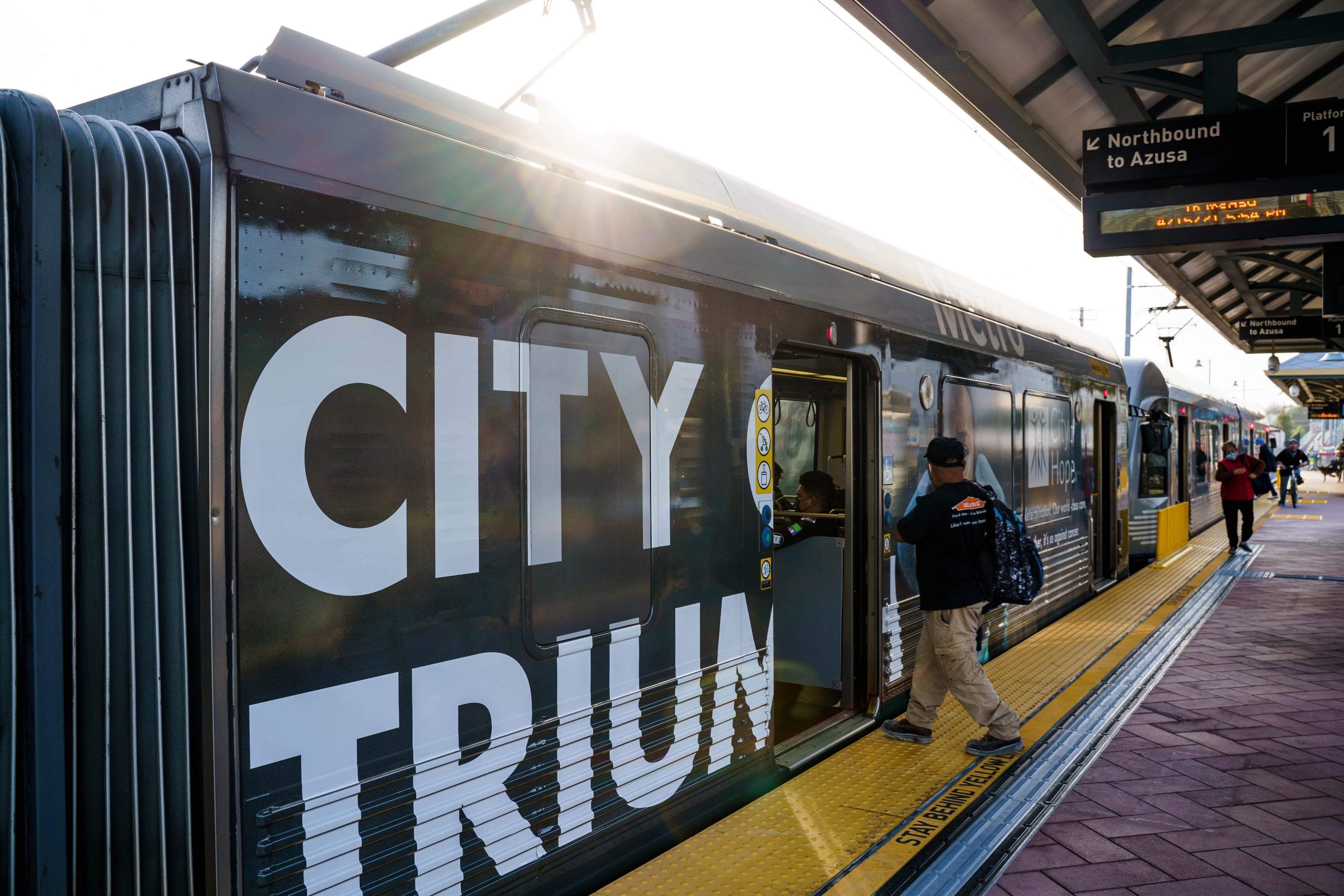UCLA forum explores how 2028 Olympics can improve LA accessibility, transportation
A train sits at a Los Angeles Metro station. A UCLA transportation forum examined how LA can use the 2028 Olympic Games to improve transit throughout the city. (Daily Bruin file photo)
By Leyton Breese
June 22, 2025 6:31 p.m.
A May 19 forum put on by the UCLA Institute of Transportation Studies examined how Los Angeles could use the upcoming 2028 Olympics to improve infrastructure, mobility and accessibility.
The forum explored how LA’s need to accommodate over a million people for the 2028 Olympics could be used as an opportunity to address the city’s congestion problems and accessibility shortcomings. UCLA’s campus is the planned site of the Olympic Village and will house international athletes.
Representatives from the LA City Council, LA Metro and various non-profit organizations were present at the event. Kasey Shuda, the senior director in the Office of Strategic Innovation at LA Metro, said many parts of the transportation sector will come together to plan for the Olympic games.
“It does take a lot of different ideas to get things done in this realm, and it can’t be business as usual,” Shuda said. “We all need to be trying our best, digging deep, taking our ideas and pushing them forward.”
Attendees at the forum’s sessions suggested the Olympics were an opportunity to make progress in LA. Carley Markovitz, a principal with Rebel Payments, Mobility, and Insights, which works with California transportation authorities, said the event allowed stakeholders from public and private sectors to organize around community-wide goals.
Markovitz added that the daily experiences of students should be considered when deciding how the city will design itself for the Olympics.
“The lived experience of a UCLA student can inform a lot of what athletes from around the world will experience when they come here,” she said.
Juan Matute, the deputy director of the UCLA Institute of Transportation Studies, said the cultural significance of public transportation goes beyond its functional role. He added that accessible change means making transit systems more intuitive for riders.
The event also honored Donald Shoup, a professor of urban planning at UCLA who died this year. Shuda credited Shoup as a major influence on the ideas debated at the forum with his ideas to transform LA.
“He saw the future of micro mobility, shared spaces and having community-based transit and mobility options,” she said.
[Related: Distinguished professor emeritus, renowned urban planner Donald Shoup dies at 86]
Accessibility during the Paralympic Games was another focal point of the afternoon session. Candace Cable, a U.S. paralympian who spoke at the forum, said in her presentation that it is important to ensure accessibility for paralympians outside of their time spent competing.
Natalie Sparrow, the city’s Americans with Disabilities Act coordinator, said she recognized recent progress in accessibility issues, such as sidewalk repair initiatives. However, more systemic reforms are still needed to ensure accessibility for disabled residents and visitors alike, she added.
Shuda added that even modest improvements driven by the LA Olympics could make a difference for the city.
“At the end of the day, it will be a win for LA, even if we only get a small percentage of what we want to get done complete,” she said.
